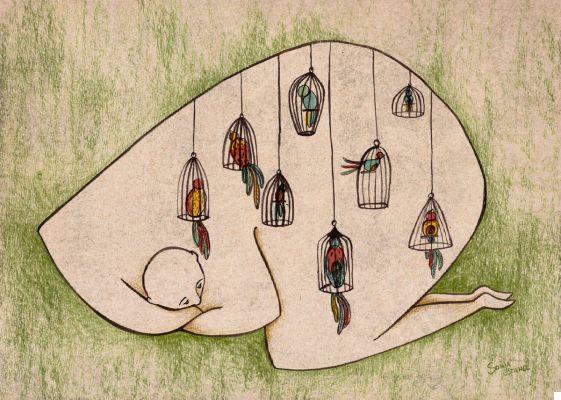
Who has never been wrong while speaking and has not
confused one word with another? It has been proven that every 1.000 words are committed
one or two mistakes. If we consider that the average rhythm of verbal expression is
of 150 words per minute, you would make a mistake every seven minutes of
conversation continues. In short, every day we would commit on average between 7 and
the 22 verbal errors.
Sigmund Freud in 1901 coined the term "fehlleistungen"
(service missed) to define these errors. Freud considered that yes
it was an unconscious thought, need or desire, which revealed itself
in this way through speech. Thus it was that the famous "Freudian lapse”He began
being used to explain strange and sometimes embarrassing behavior,
such as when a man greets the beautiful wife of the landlord
saying "happy to win" because really
he would feel sexual attraction for this woman and would like to bully her
her husband. Either way, a
Freud's contemporary, Rudolf Meringer, offered a great deal of explanation
less "sensual" for these errors. According to this philologist, errors
linguistic would simply be "banana peels" on which one slips
in the course of speech, simple accidental changes or substitutions of
linguistic units, no more and no less. However, modern research has taken up this theme but
from a different perspective. Indeed, Gary Dell, professor of linguistics and
psychology of the University of Illinois, argues that the lapsus linguae are the example
a person's ability to use language and its components. In his opinion, the concepts, words and sounds,
are interconnected in the brain through three networks: lexical, semantic and
phonological. The word comes from the interaction of the same. But sometimes, the networks,
that operate through a process he called "activation propagation",
they move intermittently. Thus, sometimes the result is a slip or an error in the
speech formation. For example, let's imagine we want to say the
word "to cultivate". At this point our mind activates a semantic network
which is made up of more or less 30.000 words. Then all the
meanings related to the word cultivate and even ours
personal experiences with the same. At the same time, our network
phonological must take action to look for the appropriate sounds that allow for
pronounce the word. And not only that, but we must also look for the correspondence
grammar so that the word sounds good in the sentence. As you can imagine, it is
very easy for our brains to get confused. It would be strange that it is not
did! For this reason, sometimes we only pronounce the first ones
syllables of the wrong word since we immediately realize the misunderstanding.
Of course, it will be much easier to confuse words that sound similar,
such as: hospitality and hostility, insinuating and establishing. Thus, the
most slips of the tongue are nothing more than "banana peels" on
which one slips, produced by an "overload" of brain work. But others are not! Indeed, some verbal errors can be
caused by the incidence of meanings. For example, when we think in the name
a person's experiences immediately spring to mind
itself. In this way, these experiences or desires could be there
cause of the error. In short, it would be a matter of verbal slips caused by
intrusive thoughts. The problem is rooted in the fact that the more there
we try to suppress these thoughts and the more they become frequent and,
it would not be strange that they presented themselves through linguistic errors.
Obviously, the more distracted we would be, the more mistakes we would make. This is demonstrated by a curious experiment
developed by the University of California, in which psychologists asked
some straight men to talk about their work in front of a woman
dressed in a provocative way. As a result, these men were committing more
verbal slips of a sexual nature with respect to those who had been interviewed by a
other man. Of course, this happens because our brains have one
limited ability to maintain attention and cannot control so many
processes at the same time. There would be a solution to avoid these errors
simple enough: speak slowly to reflect on what we will say.


























